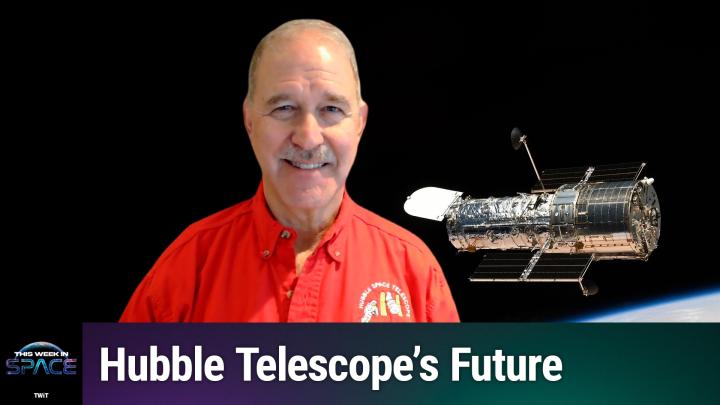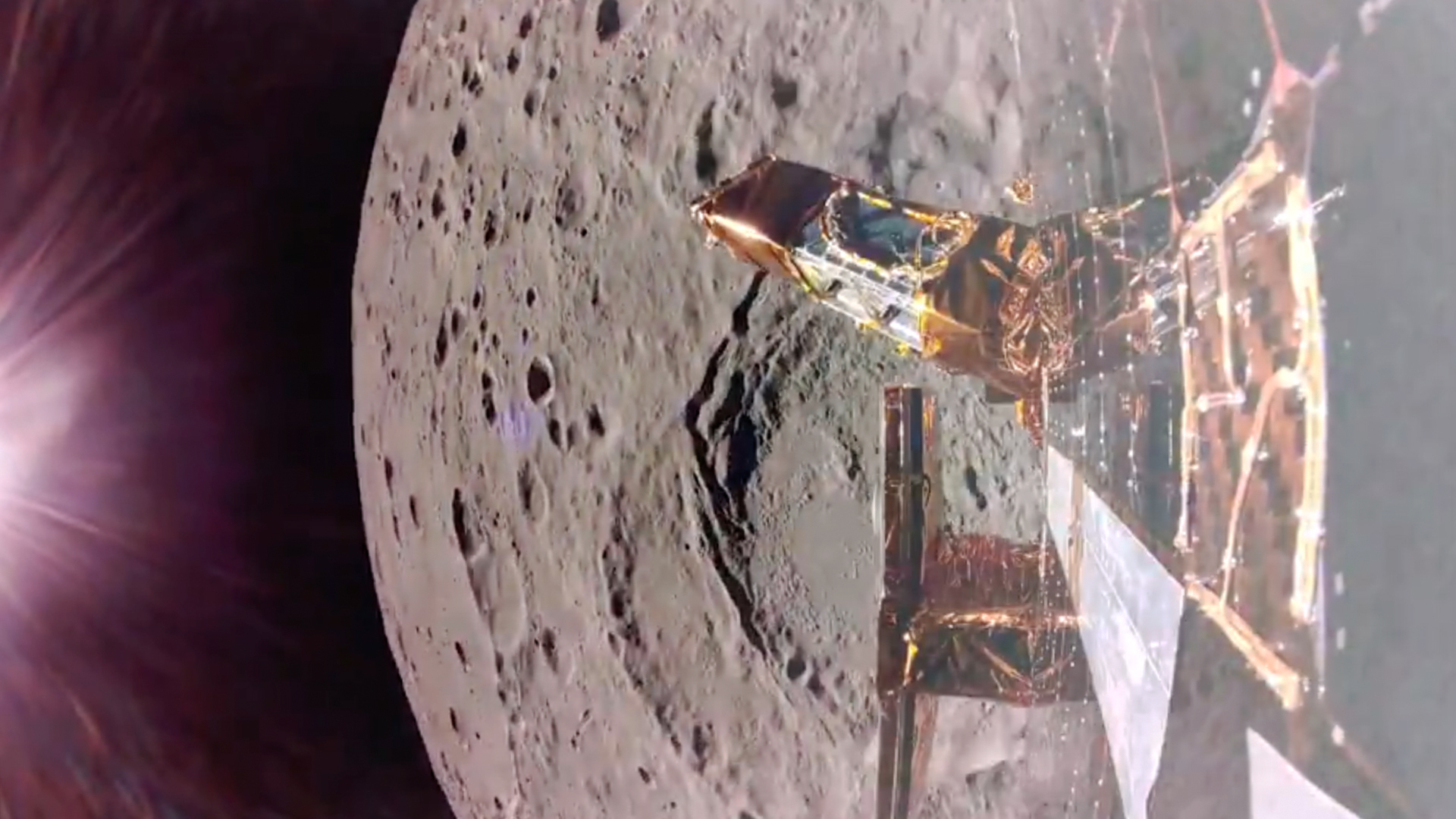Best Night Sky Events for Stargazers in January 2015 (Sky Maps)
Double and Triple Shadow Transit on Jupiter, Jan. 23-24, 2015
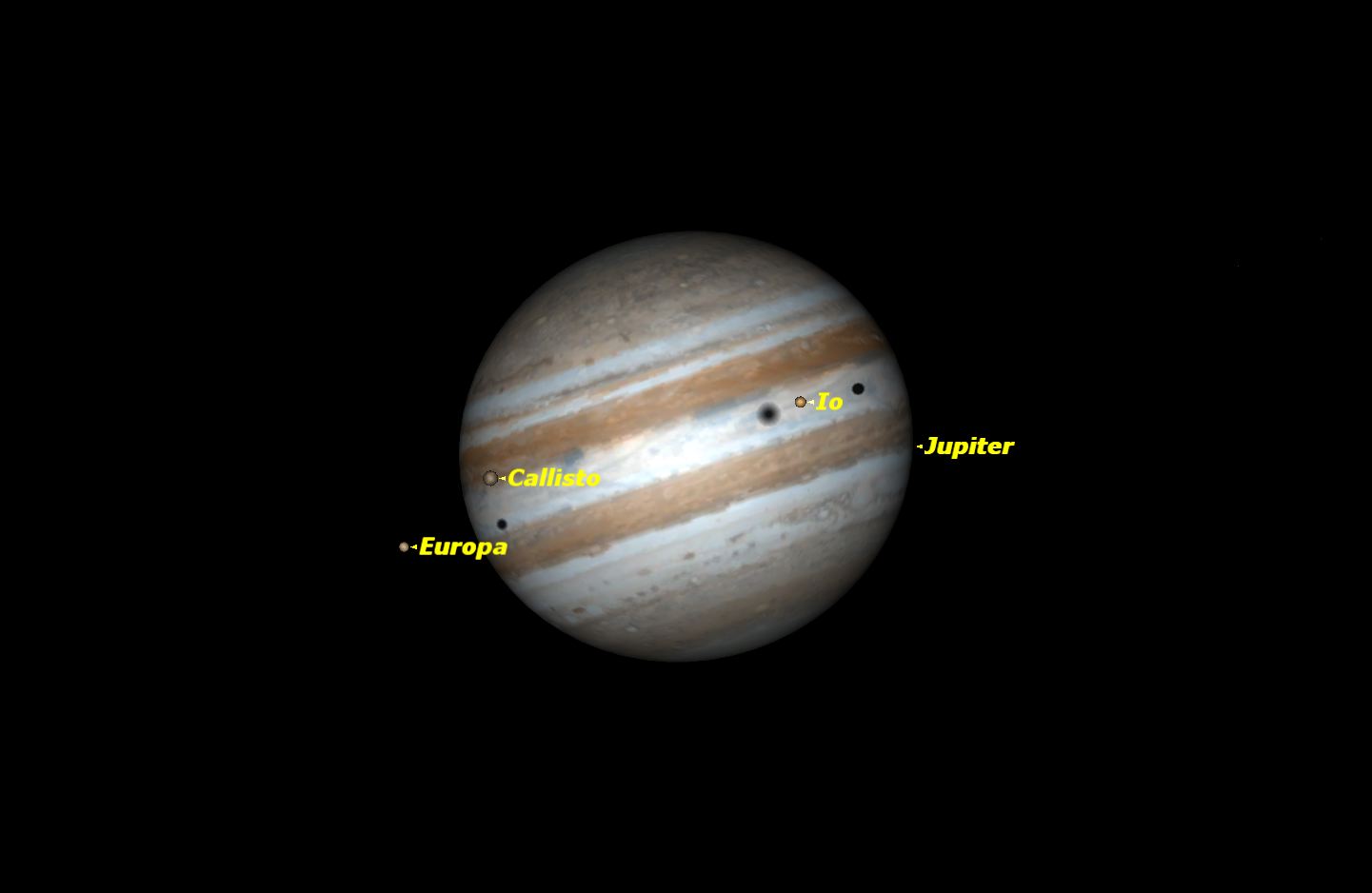
Friday–Saturday, Jan. 23–24, 11:35 p.m.–03:00 a.m. EST. The shadows of Io, Europa, and Callisto will fall simultaneously on Jupiter; this is an extremely rare event, which will not occur again until 2032.
Aldebaran and the Moon, January 2015
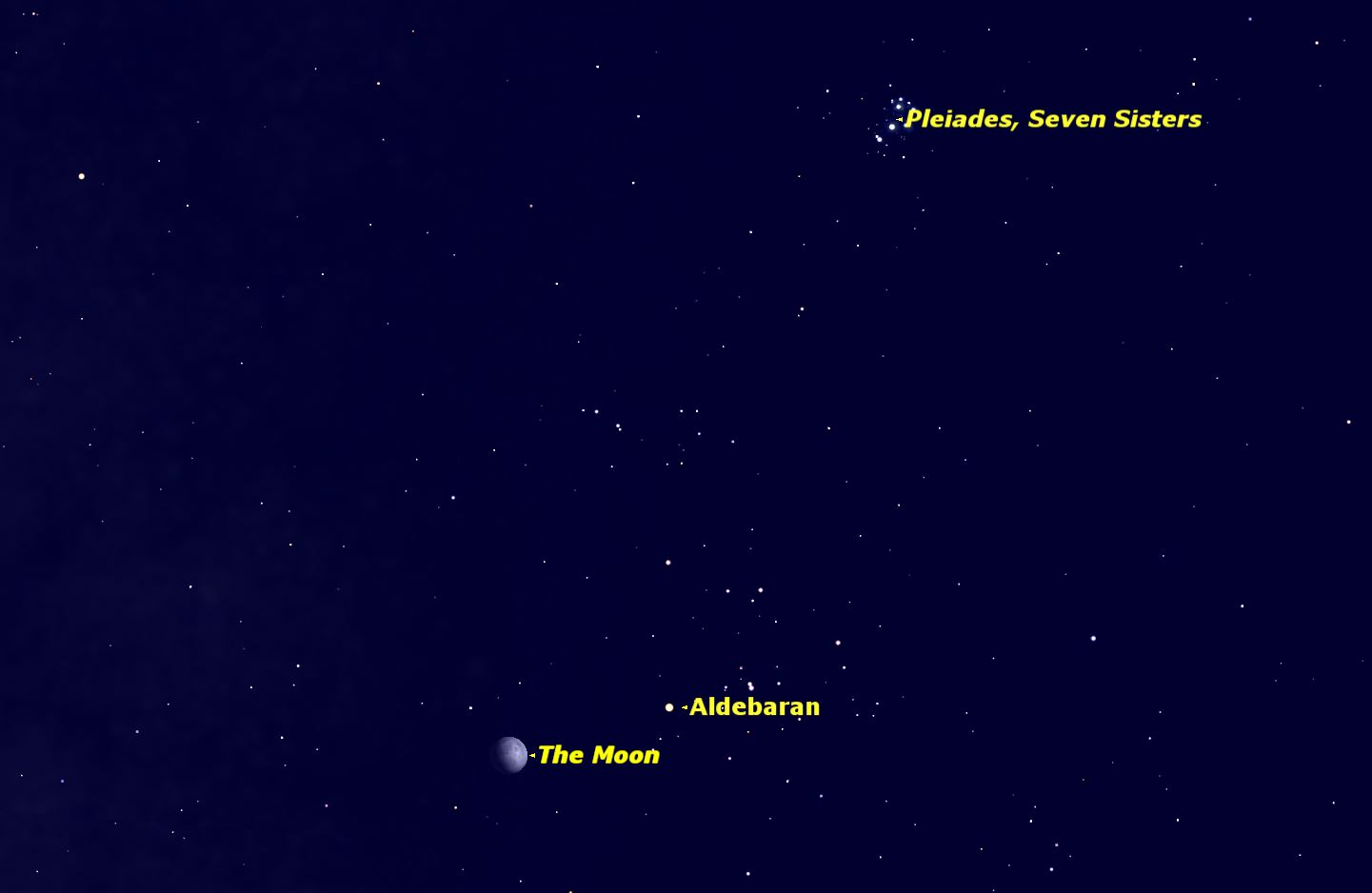
Thursday, Jan. 29, dusk. The waxing gibbous moon is east of the red giant star Aldebaran and the Hyades star cluster. The bright Pleiades star cluster is above and towards the west.
Mercury, January 2015
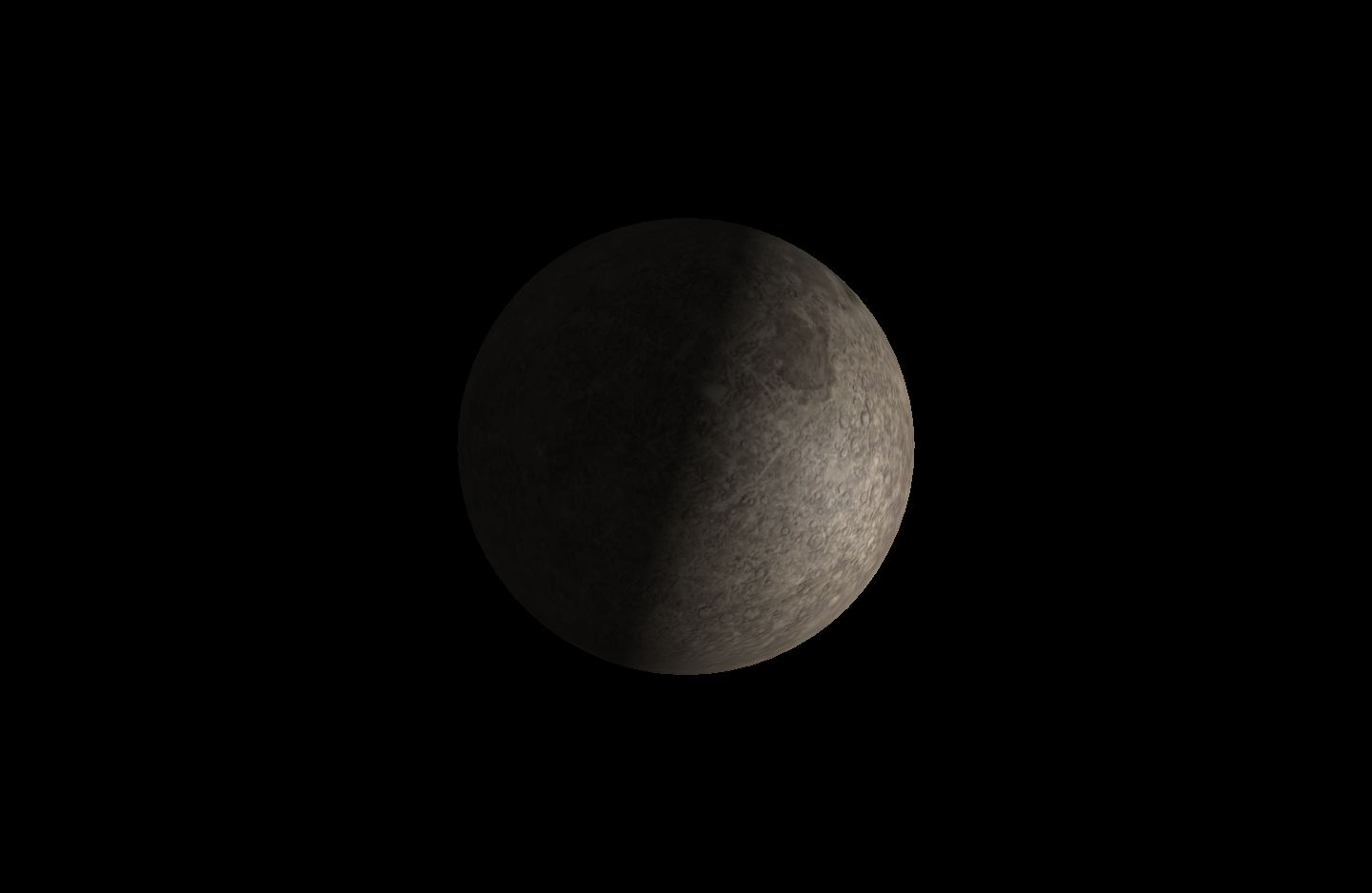
Mercury is well placed in the evening sky close to Venus.
Venus, January 2015
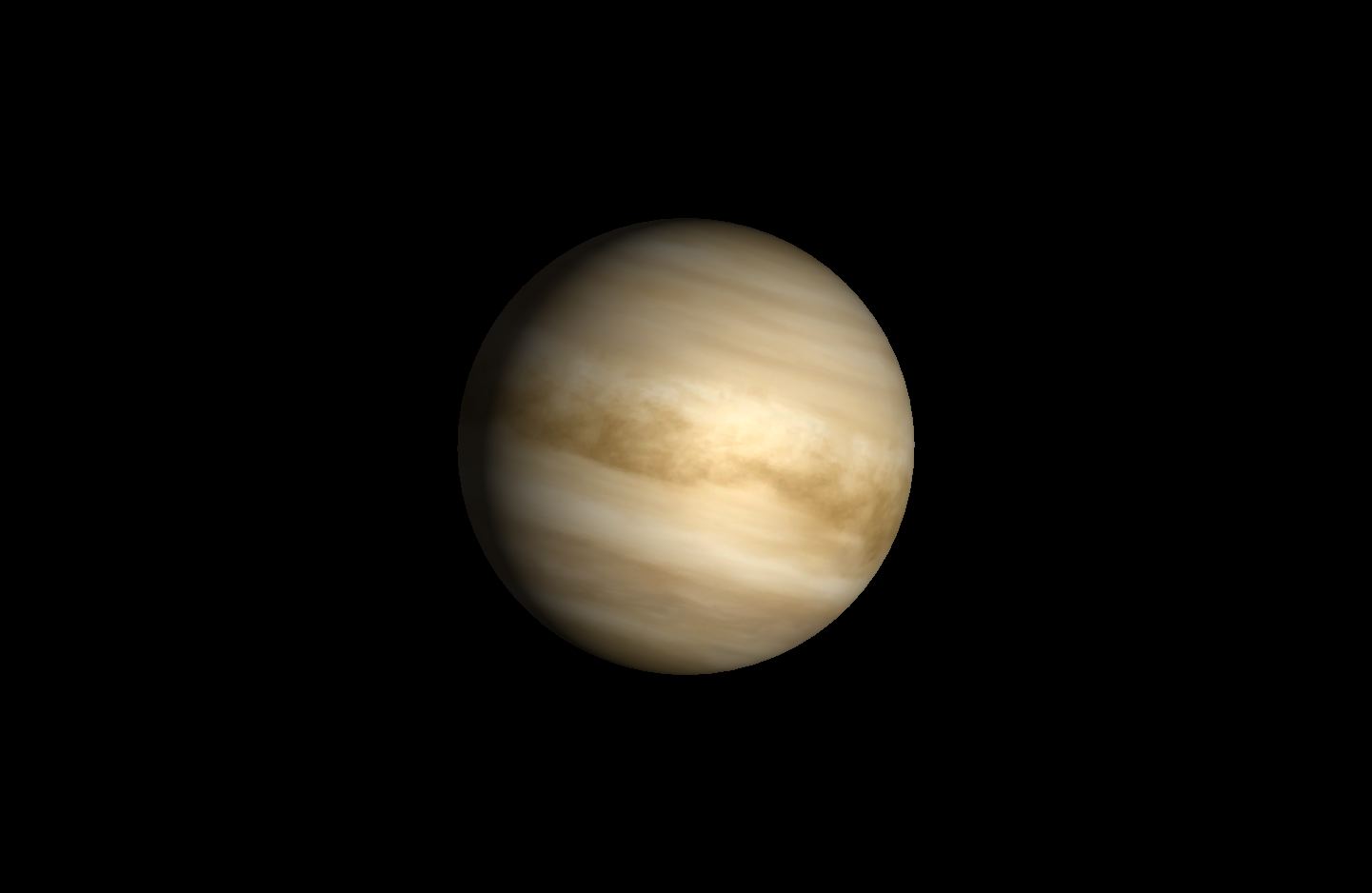
Venus is an “evening star” in the southwestern sky just after sunset.
Mars, January 2015
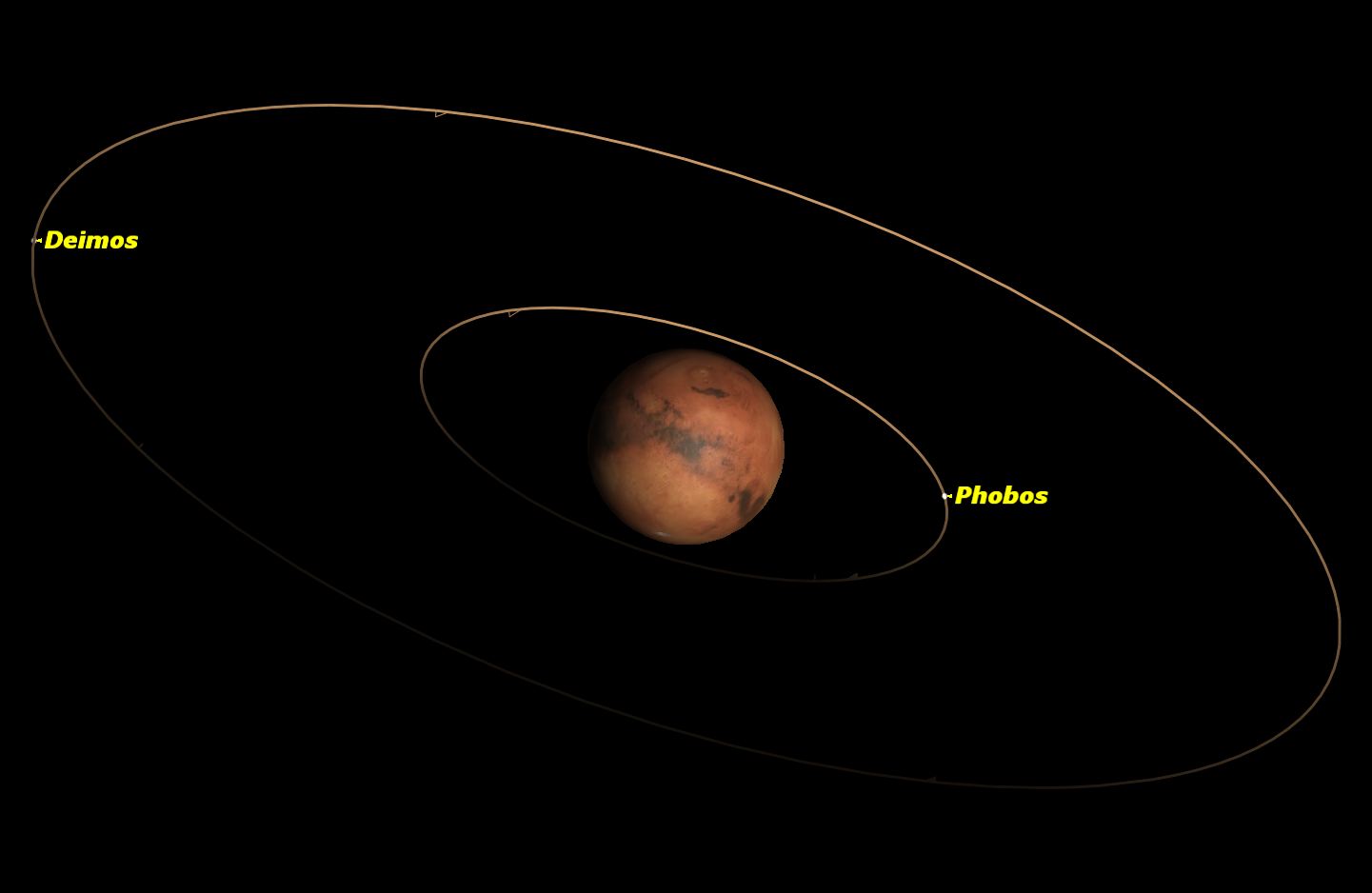
Mars spends most of the month in Aquarius, low in the southwestern sky after sunset.
Jupiter, January 2015
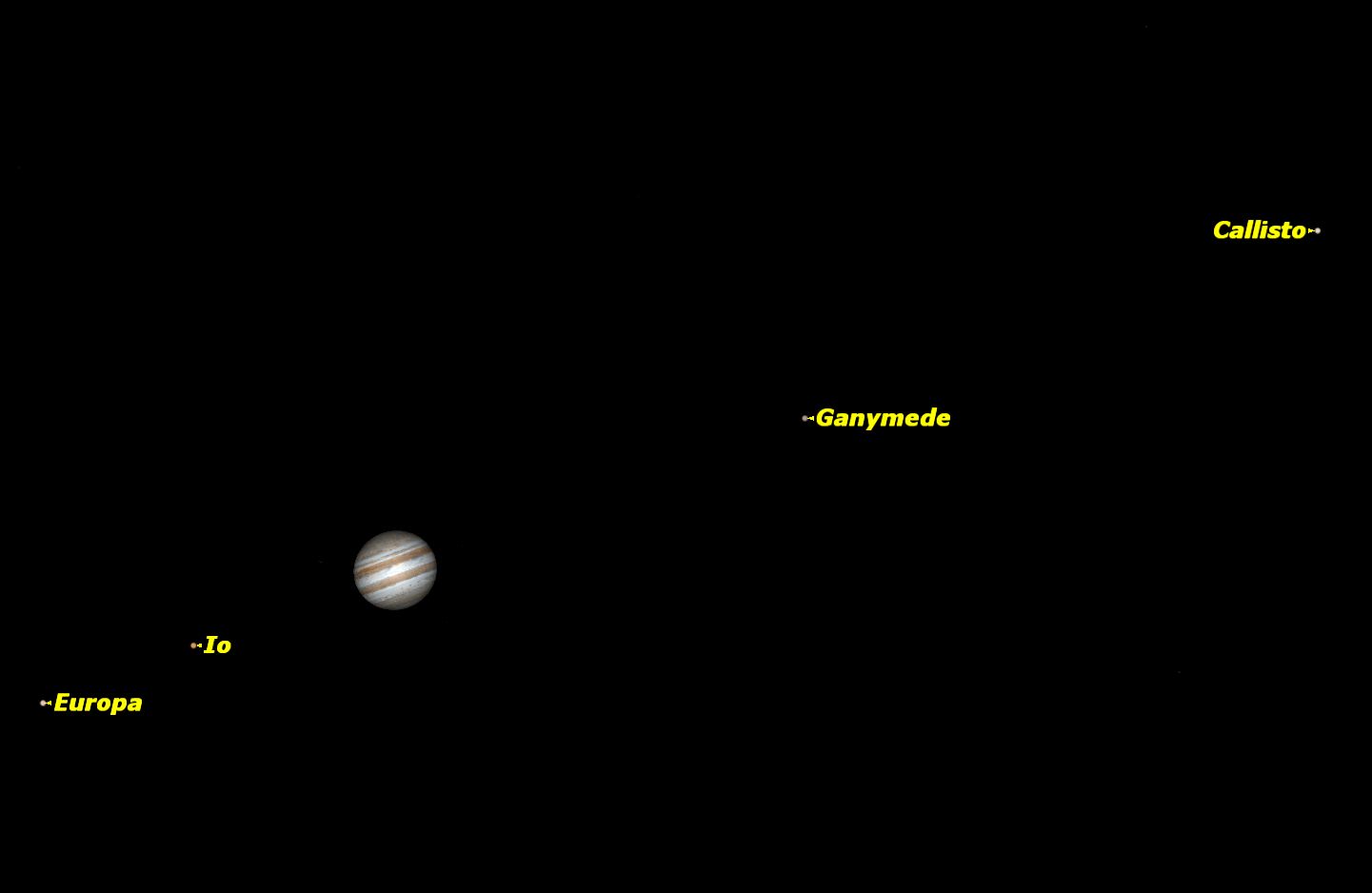
Jupiter now rises in the early evening in the constellation Leo, and shines brightly in the southern sky the rest of the night. The current series of double shadow transits culminates in a triple shadow transit on the night of January 24.
Saturn, January 2015
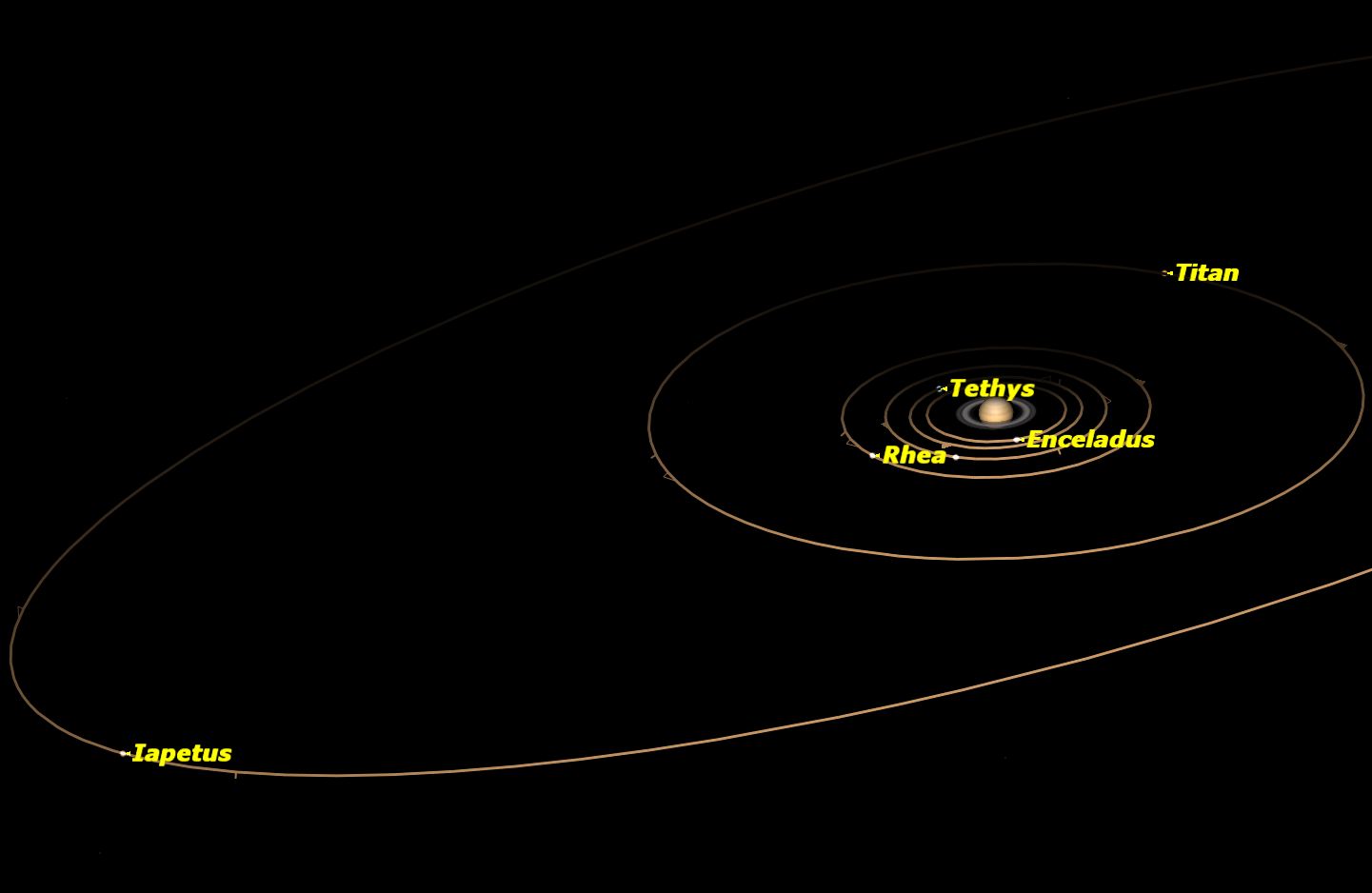
Saturn moves from Libra into Scorpius on Jan. 17 the southeastern morning sky.
Get the Space.com Newsletter
Breaking space news, the latest updates on rocket launches, skywatching events and more!
Uranus, January 2015
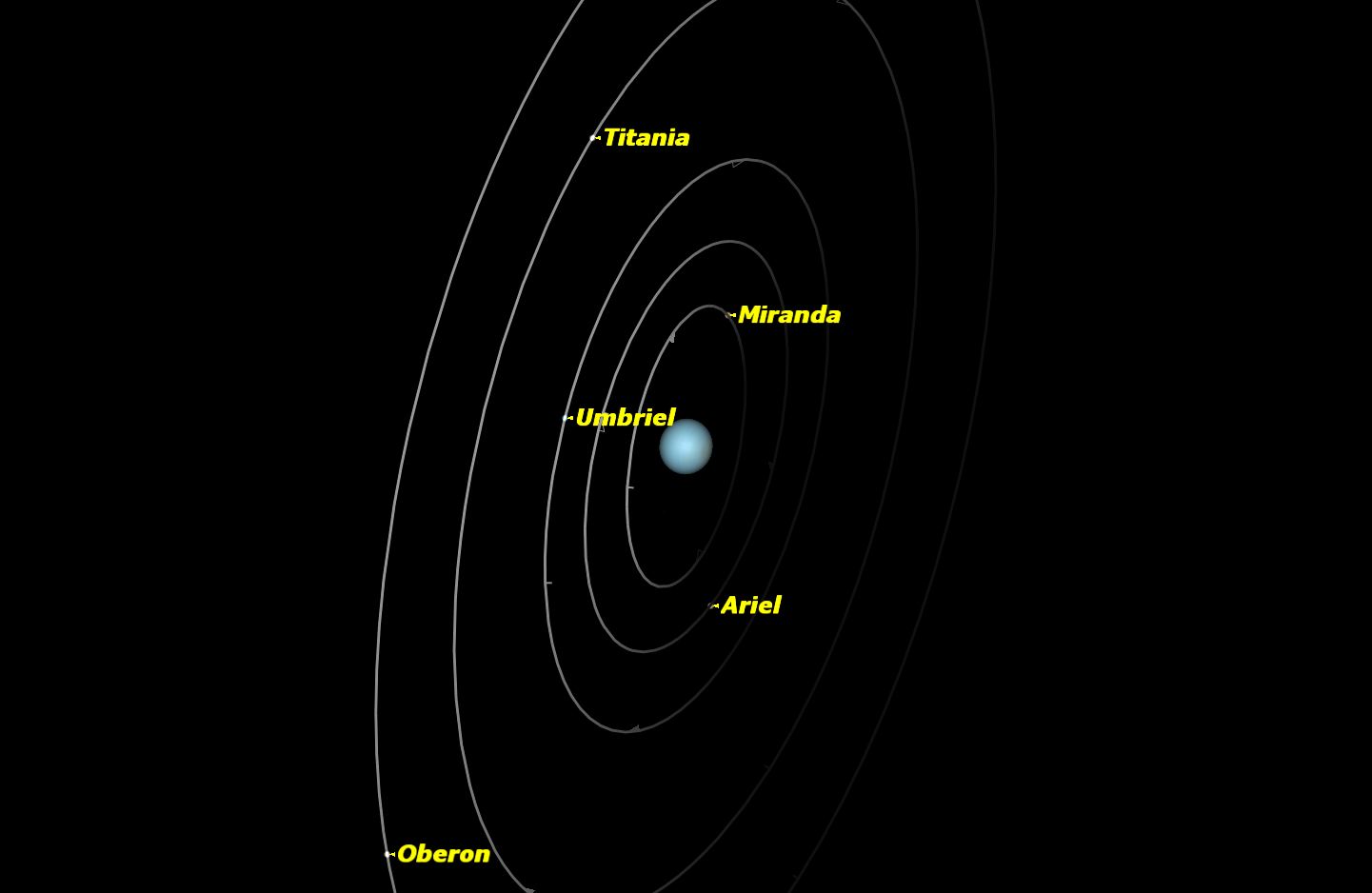
Uranus is well placed in Pisces in the evening sky, setting in late evening.
Neptune, January 2015
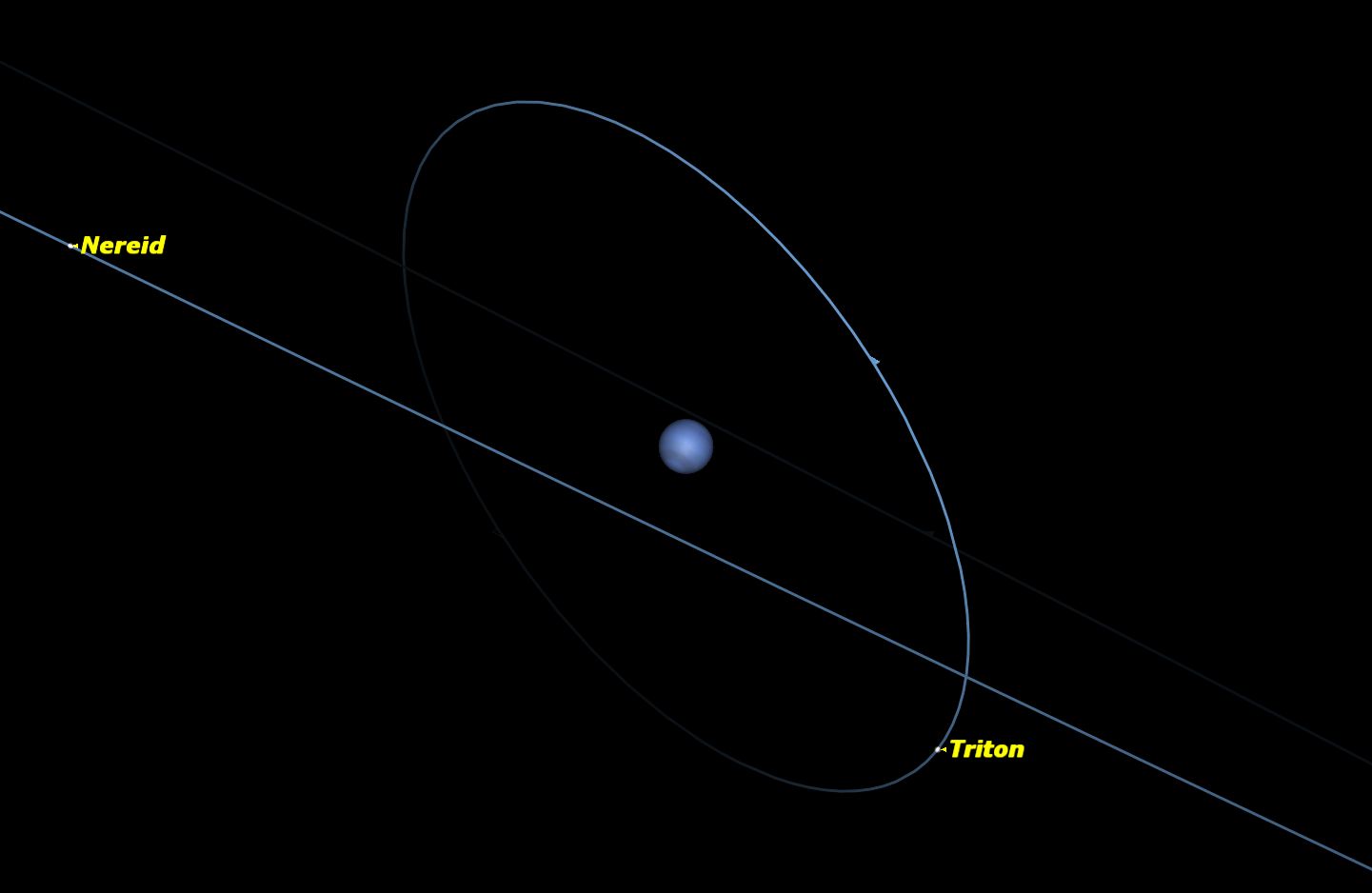
Neptune is low the western evening sky in Aquarius.
Join our Space Forums to keep talking space on the latest missions, night sky and more! And if you have a news tip, correction or comment, let us know at: community@space.com.
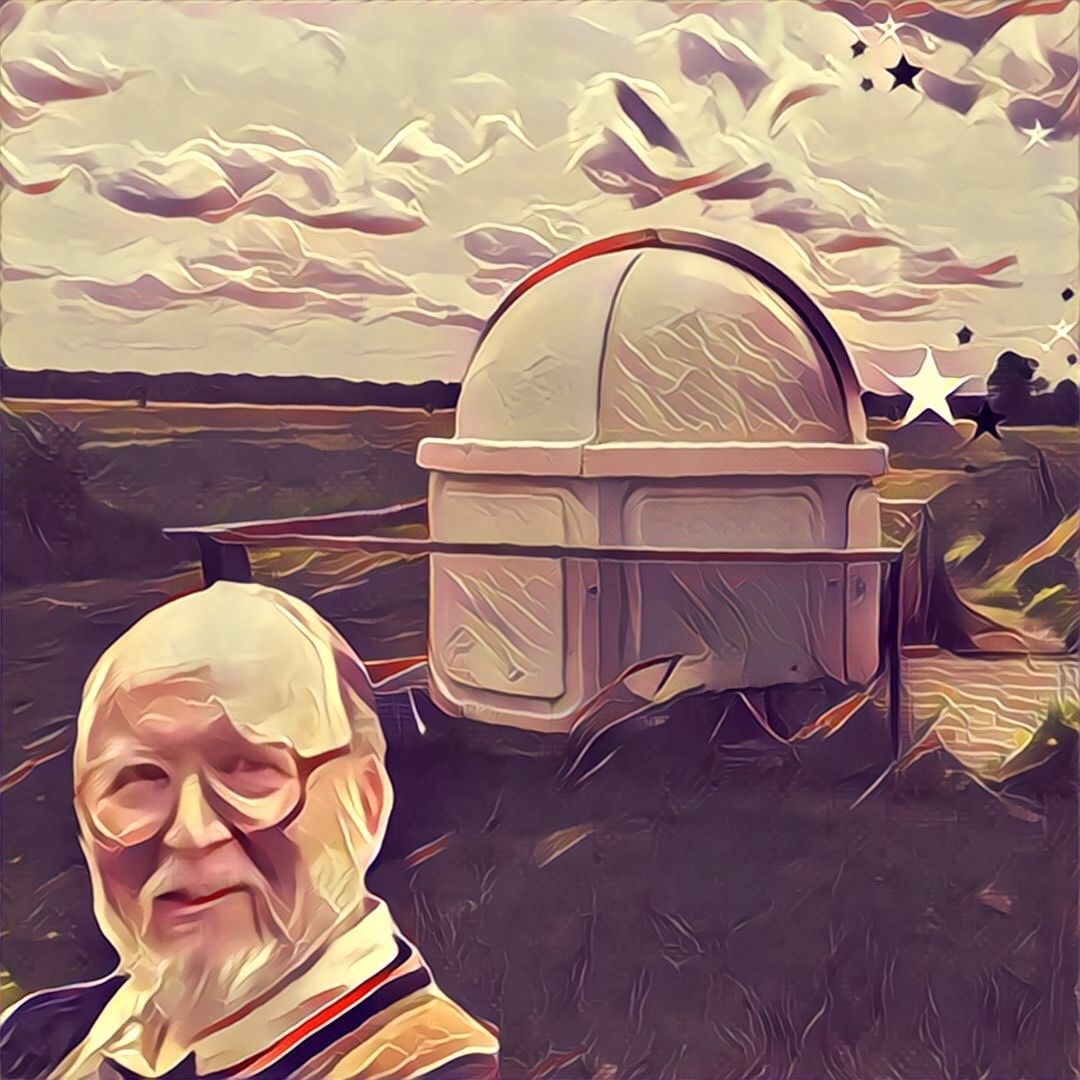
Geoff Gaherty was Space.com's Night Sky columnist and in partnership with Starry Night software and a dedicated amateur astronomer who sought to share the wonders of the night sky with the world. Based in Canada, Geoff studied mathematics and physics at McGill University and earned a Ph.D. in anthropology from the University of Toronto, all while pursuing a passion for the night sky and serving as an astronomy communicator. He credited a partial solar eclipse observed in 1946 (at age 5) and his 1957 sighting of the Comet Arend-Roland as a teenager for sparking his interest in amateur astronomy. In 2008, Geoff won the Chant Medal from the Royal Astronomical Society of Canada, an award given to a Canadian amateur astronomer in recognition of their lifetime achievements. Sadly, Geoff passed away July 7, 2016 due to complications from a kidney transplant, but his legacy continues at Starry Night.




